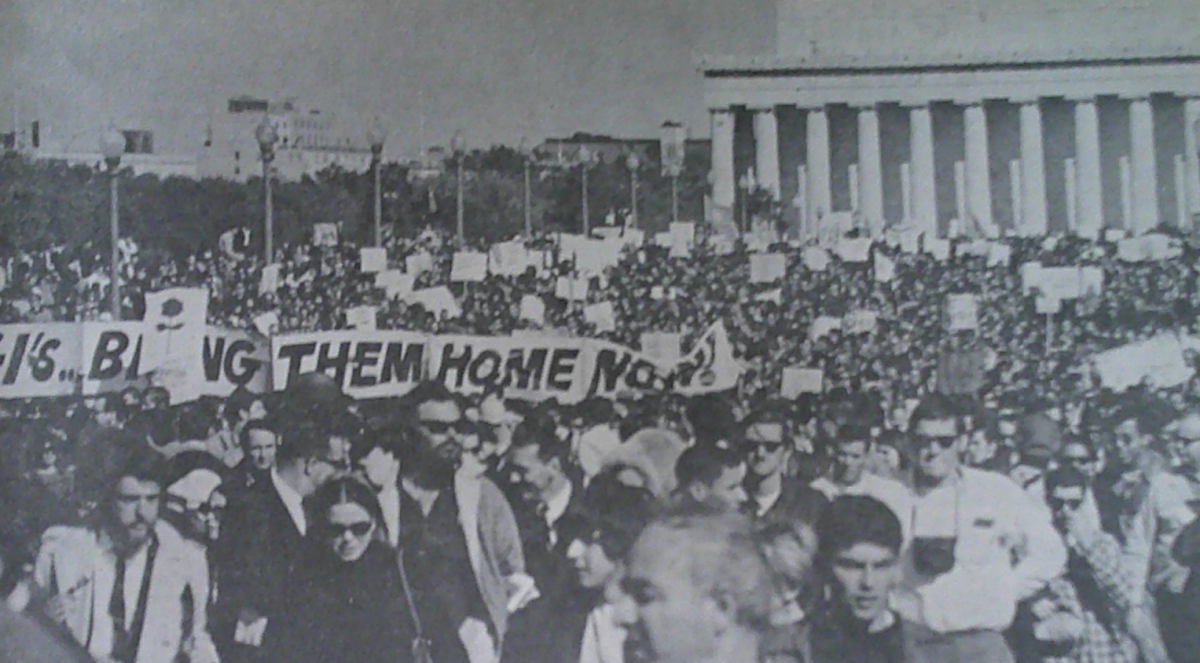Turn your head right – not left. Hands up on beat four – not three.
Touch his shoulders with your whole hand – not just your fingers.
A week before the Dec. 6 opening night of Generic Theatre Company’s “Cabaret,” the 18 cast members are packed tightly in a spare room on the Marvin Center’s second floor. It’s the third hour of rehearsal for a highly technical, highly acclaimed show that is notorious for its vibrant portrayals of sex, booze and cheap thrills.
And there’s at least another hour of painstaking attention to minutiae. Every movement counts – a show like “Cabaret” comes with

high expectations. Rehearsals rarely end before midnight.
“You open in seven days. Your energy level is at a four out of 10,” choreographer and Class of 2010 graduate Rick Westerkamp boomed. “Do something! Have a come-to-Jesus moment with yourself in the mirror in the morning!”
“Cabaret” first appeared on Broadway in 1966, chronicling the life of young performer Sally Bowles. Bowles is a staple at Berlin’s seedy Kit Kat Klub cabaret, where high-energy dances and jazzy tunes draw crowds.
As Bowles balances her love of the stage with her love for Cliff Bradshaw – an American writer new to Germany in the years between World Wars I and II – the Nazi Party’s presence steadily intensifies.
The progression of characters and an understanding of the show’s deeper message, though, developed over the course of two months.

Since October, the cast has been condensing choreography into confined practice spaces.
With each new rehearsal space came new adjustments, forcing the actors to “compartmentalize” and to “be resourceful and to adapt,” said senior Jordan King, who plays Bradshaw.
Student theater groups jockey to reserve the coveted Lisner Downstage and West Hall Black Box spaces for rehearsals, but the Downstage is “booked literally almost every single day of the semester,” director Madeline Hendricks, a senior, said. Cast and crew members learned of their rehearsal sites only 15 minutes before call time, entering classrooms where podiums and desks obstructed dynamic dance numbers.
“The challenge is that I’m literally on top of [the actors]. It’s very hard to see, visually, and to take in what it’s really going to be like in the theater when they’re a foot away from me, and then there’s also things like the podium,” Hendricks said.
The show about show business comes with high visual and physical demands. But for the student performers, the show’s technical elements – musical accompaniment, costumes and the set – came together in a whirlwind just days before opening night.
The show’s juxtaposition of the cabaret’s decadence and the government’s oppression sets “Cabaret” apart from many traditional musical theater productions. As Kit Kat Klub patrons seek solace from the severe national state inside the levity of the night club, Cabaret’s looming, leering master of ceremonies, played by sophomore Andy Lieberman, never fails to remind the audience of the Nazi Party’s growing, unrelenting presence in Germany.
Lieberman noted that “as a Jewish student,” he was initially unsettled by the script.
“[The emcee] is the only character who’s openly critiquing the rise of the Nazis and the problems associated with that. He’s the only character to openly mock them for what they’re doing,” Lieberman said, foreshadowing that, “in the end, it does come back to bite me in the butt.”
To deliver a convincing performance, the cast worked extensively with two theater professionals to perfect their German accents. Two cast members also helped train fellow performers on German language and the historical and cultural context of the plot, steering actors away from stereotypical, overdone European accents.
Sophomore Chris House, who plays Bradshaw’s German friend Ernst Ludwig, said that he aimed to authentically perform not only the accent and the character, but also depict the precarious yet jovial time period.
“We’re trying to show that this is really the in-between, between World War I and World War II, where, yeah, the economy was crap and things weren’t great, but people in this lifestyle were happy, because it was almost dreamlike, just pure entertainment,” House said.
Hendricks, the director, has led and starred in numerous shows at GW. As a high school senior, she won the Fidelity FutureStage Playwriting Contest.
She said she hoped the production would resonate with audiences.
“I hope more than anything that people walk away remembering that theater does have the power to change people’s mind about things, and to remind us about things that we forget, and to tell really, wildly important stories,” Hendricks said.
New to GW student theater, sophomore Madison Awalt, who portrays the confident and charming Bowles, said she was at first intimidated by her starring role. After developing what she said is a “unique” take on the well-known lead, Awalt’s confidence grew despite being initially “thrown off” by the classroom rehearsal environment.
At the forefront of this production, Awalt said, is a compelling narrative of strife in a war-torn era.
“The thing I love about ‘Cabaret’ is, it’s a musical, and people come see musicals because they want to be entertained. But more importantly, [“Cabaret”] is a story, and it’s a story that needs to be told,” Awalt said. “There are all these flashy dance numbers, the whole shebang, but underneath it all, it’s a story about the struggle and desperation that that time in history had.”







